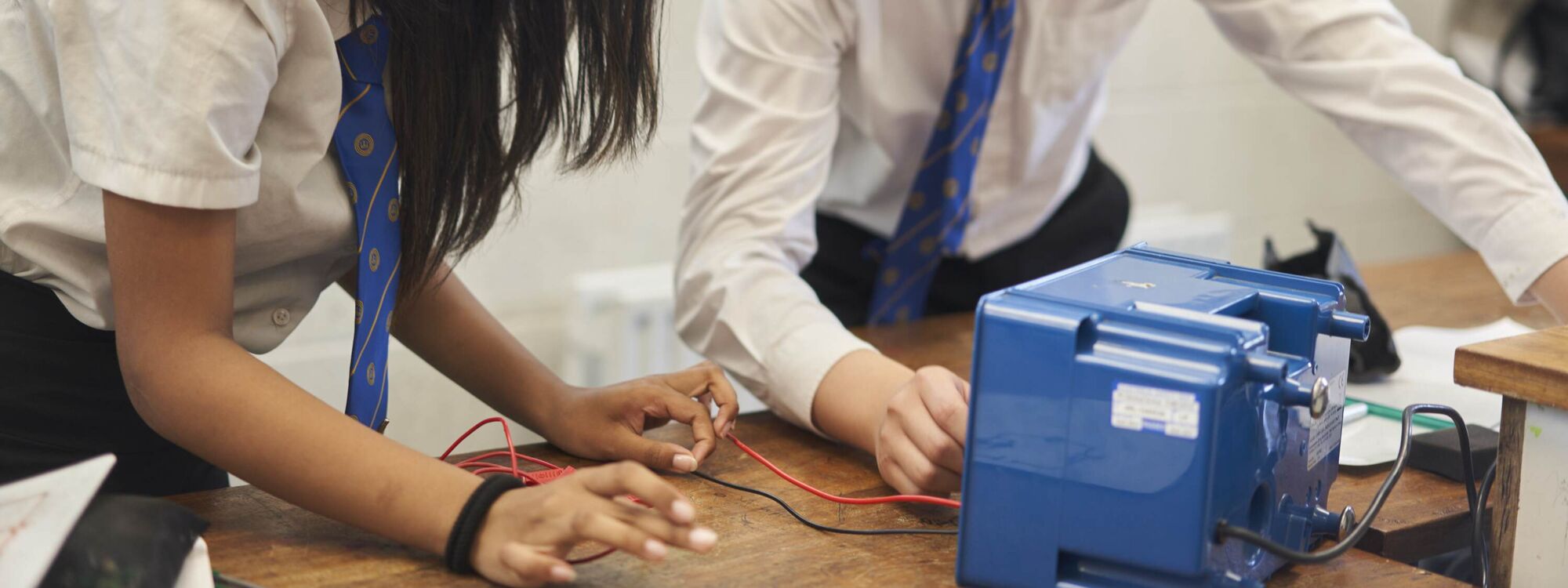- Home
- Essential Information
- Subjects
- Engineering
Engineering
EXAMINATION
Engineering is a process used to develop and enhance new products and systems as a response to market opportunities. Systems Control in Engineering is the study of microprocessor controls that uses sensors, feedback and actuators that constantly adjust for a desired performance. Through this qualification students explore computer and microprocessor applications and learn how systems are used in engineering environments such as product design, automated manufacturing, maintenance and stock control. Students also take part in engaging practical tasks such as producing simple electronic circuits, testing the operation of circuits, and designing and testing a simple control system.
Curriculum
GCSE Revision Guides
This guide provides information about this GCSE course with advice to help you succeed; also included: useful links to the relevant exam board, curriculum map, past papers and revision websites.
Helping Your Child Through the GCSEs - Top Tips
The exam season can be a particularly stressful and challenging time for both students and parents. If your child is grappling with revision schedules, difficult subjects, and the pressure to perform, these 'top tips' will help you to support them.
Exam Qualifications
Cambridge National Level 1 & Level 2 Certificates Exam Board: OCR
Year 9 Options
Choose this subject if...
- you believe you can achieve well in practical areas of learning and are open-minded to new ideas and thinking.
- you are self-motivated and can work independently of others.
- you are focused, taking responsibility for your thoughts and ideas.
- you are willing to apply yourself to tasks that require drawing/writing, scientific/mathematical as well as computer related knowledge and skills.
Future career / further education options...
Currently there is great interest and need in growing our own skills-based workforce. This includes many areas of the economy that are traditionally associated with the Creative, Engineering, Construction and Manufacturing industries. This vocational qualification offers real life skills that help to prepare students for the changing world they face when moving into the world of employment.
Assessment...
| Component 1 | Component 2 | Component 3 | |
| Name: | Principles of electronic and programmable systems | Making and testing electronic circuits | Developing programmable systems |
| Assessment: | Exam | Non-exam assessment | Non-exam assessment |
| Weighting: | 1/3 of qualification | 1/3 of qualification | 1/3 of qualification |
